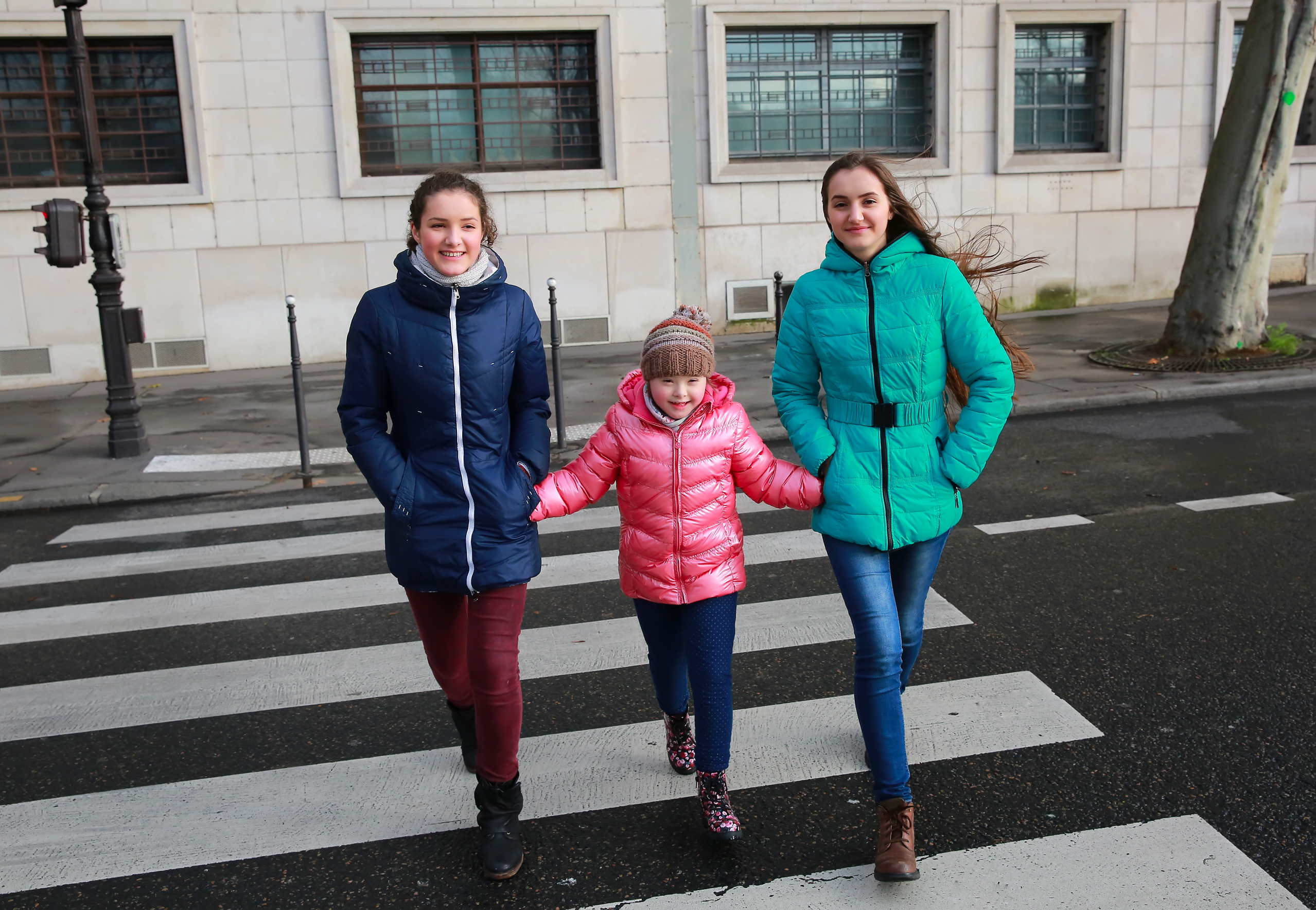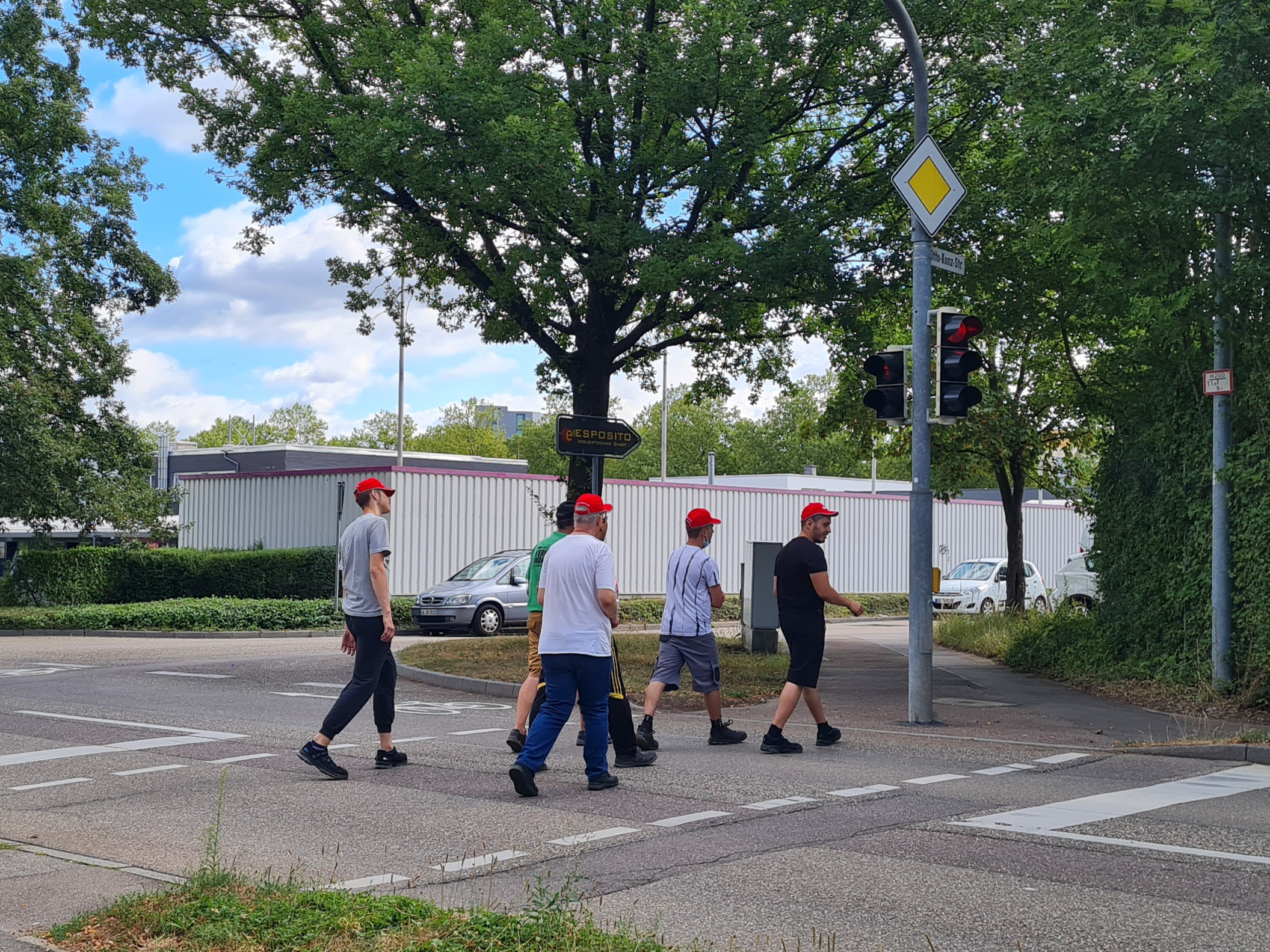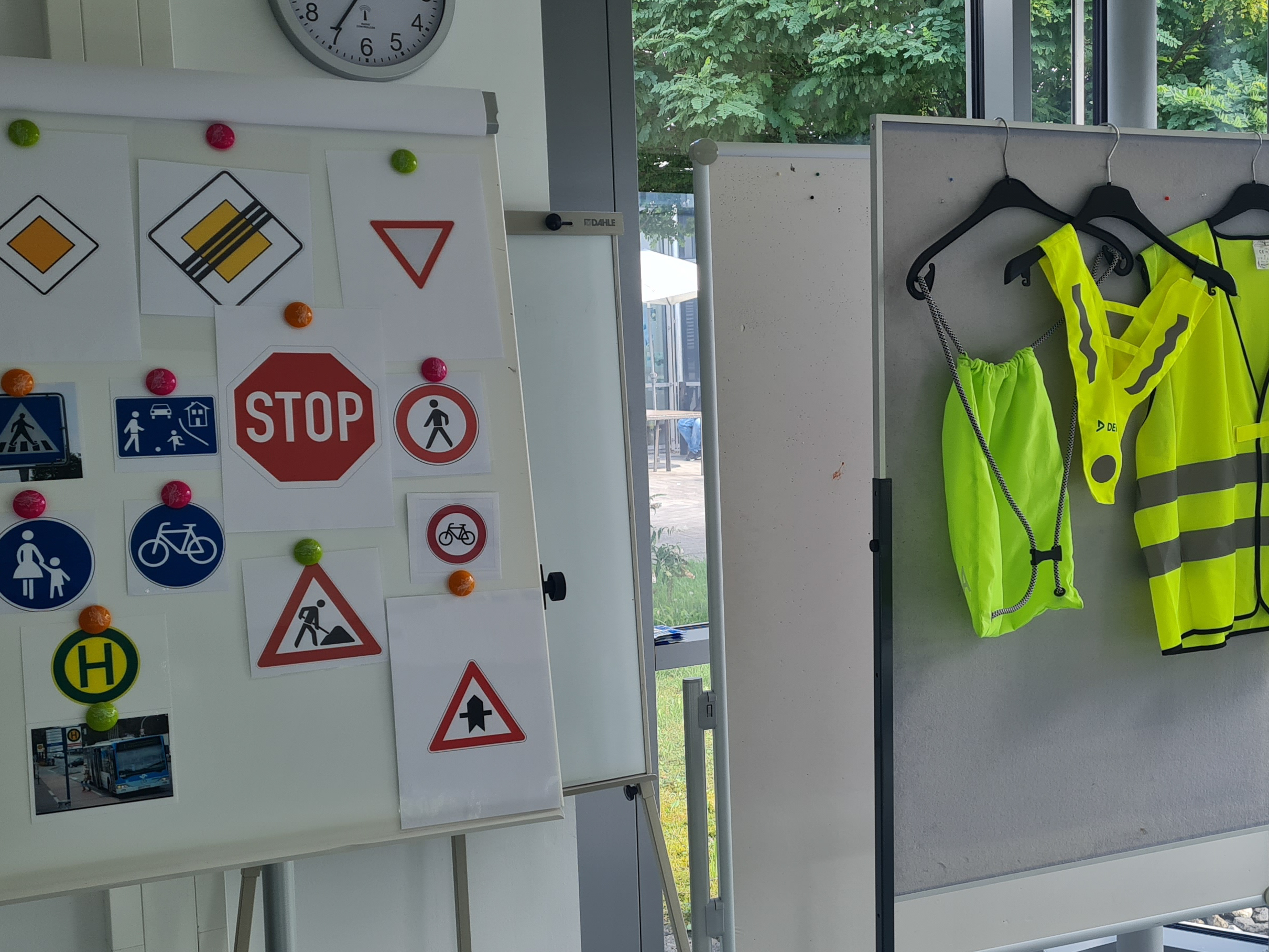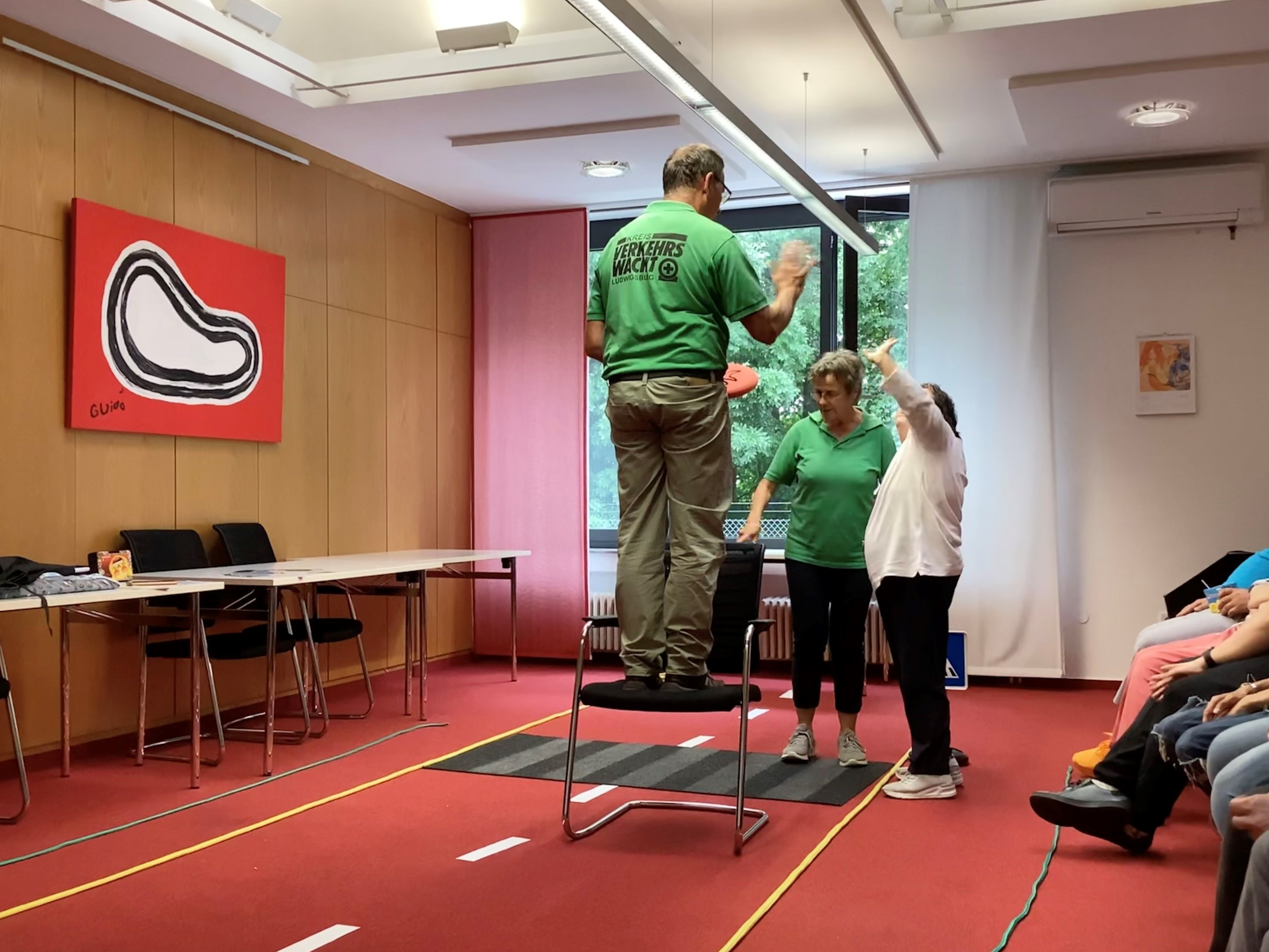Being safe in traffic and behaving responsibly is not an easy thing to do. That is why children have to learn and practice this continuously. It is even more difficult for road users with physical or mental disabilities. Jutta Kuhn knows that too. The managing director of the Ludwigsburg Division of the German Association for the Prevention of Road Accidents (Deutsche Verkehrswacht) in Baden-Württemberg began her work with driver safety training for adults in 1990. 15 years ago, she not only took over the chairmanship of the association, but also specialised in the training of children, adolescents and adults with intellectual disabilities with her road safety training courses. In an interview, she explains why the topic has become a matter close to her heart.
Ms Kuhn, how would you describe traffic education for people with intellectual disabilities? What exactly do you do?
Kuhn: First of all, you have to know that there is not the one programme or the one traffic education, because the range of children, adolescents and adults is huge. For example, I regularly go to a school with pupils with special needs in terms of learning. These are often just as cognitively fit as all other children, only they have difficulties with concentration. I then do shorter modules and even more movement games, for example. Or let's take a child with autism – I'll tell them once that they have to stop on red and they will almost certainly never cross the road again when the light is red. For people with more severe disabilities, I have to remember, for example, that they will never be able to distinguish between right and left – you can work with bands on their wrists, for example. It really couldn't be more individual.
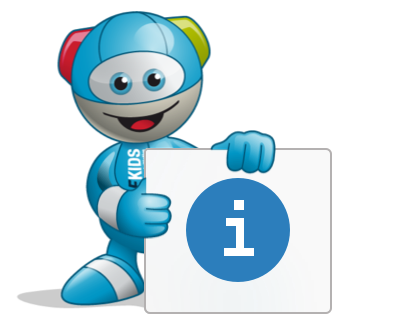
Traffic education in Germany is firmly anchored in education curricula. And this has been the case since a decision by the ministers of education and the arts in 1972. Following an advancement of the decision in 1994, the "recommendations on traffic education at school" are no longer limited to pure safety education, but also include the students' critical examination of the topic of traffic in general. Traffic education therefore also includes social education, environmental education and health education – from grades 1 to 13 and for children and adolescents with or without special needs.
What do you think are the most important points in your target group's traffic education?
Kuhn: First of all, you just have to take your time, that's half the battle. And of course you have to refresh the topics regularly, as they are sometimes forgotten. The playful approach to the content is also very important. For example, I work with hidden object pictures, read stories, we make traffic sign bingo games or I have dolls with me. But the most important thing is to have confidence in your counterpart. The children and adults are often much more capable than we assume.
Are there any training courses, guides or materials you have prepared for your work?
Kuhn: Yes, for example, when I started, I attended a training course with a psychologist. There are many materials and documents, for example those from the "Mobile participation" project of the Deutsche Verkehrswacht. They're great. Nevertheless, I also developed them further according to my personal experiences and wrote my own concepts.

The project "Mobile participation – Kids learn traffic!" goes back to an initiative of the Educational Science for Intellectual Disability Chair at the Ludwig Maximilian University of Munich and the TÜV SÜD Foundation. The documents help to make pupils with intellectual disabilities fit for the everyday challenges of road traffic and thus enable them to participate in a self-determined way.
What do you personally like about working with people with disabilities?
Kuhn: Whether children or adults – they are always enthusiastic about what they do. That gives me a lot in return. With this target group, you also have to approach the matter with a lot of calm, as some of them cannot cope well with excitement. This calmness then also radiates back to me – which is very good in my really stressful day-to-day work. I can't describe it any other way than that my commitment simply comes from the heart.
Has word of your work spread and is demand increasing?
Kuhn: It is with respect to traffic education in general, but of course also in this area. For example, parents with children with greater support needs come privately and ask for support beyond the school's involvement – for example, in bicycle training. We always try to meet these needs.

Educational institutions, think tanks and organisations worldwide deal with the topic of traffic education and safety for children with special educational needs. For example, the British non-profit organisation "Royal Society for the Prevention of Accidents" – RoSPA for short – has published a special guide for parents and caregivers. This is clustered according to different support requirements. It explains exactly which specific problems children with an autism spectrum disorder, ADHD or a reading/spelling disorder have in traffic situations and which methods specifically help them to solve them and be safe in traffic.
Education that must never stop
For people with intellectual disabilities, the topic of traffic education does not end with school education. "Adults also need a refresher in their knowledge and continuous repetition here," says Magdalena Molnár from the Association for Work and Vocational Training for Disadvantaged People in Ludwigsburg which runs five workshops with workplace and care facilities for people with disabilities. "That is why we regularly offer traffic education training for our employees at the Theo Lorch workshops in cooperation with the local division of the Association for the Prevention of Road Accidents," says the head of the education department. "Because education means steps towards self-determination. Through our training, we enable employees to develop at their individual learning pace and within the limits of their possibilities."
The trainers usually approach the topic just as playfully as they would with children. The fact that mentally impaired people would never travel alone in road traffic, even in adulthood, is a common but false prejudice. "We do have employees who can manage their own commute." But even for those who cannot travel unaccompanied in road traffic, the courses are enriching, explains Molnár. "Our social task is to enable inclusion and participation. I am convinced that with our training courses and together with our cooperation partners, we are making a valuable contribution to the people entrusted to us."


